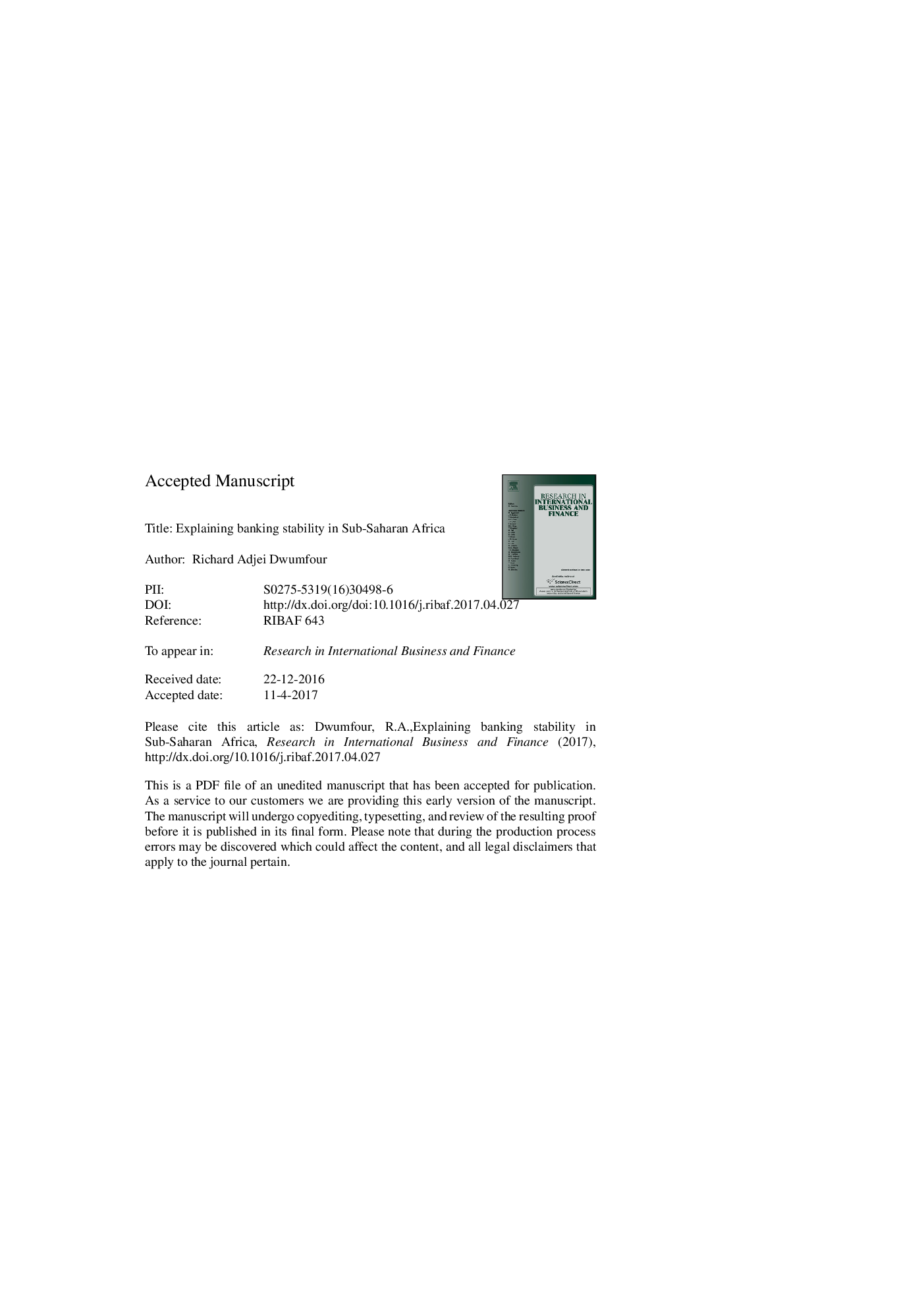| Article ID | Journal | Published Year | Pages | File Type |
|---|---|---|---|---|
| 5107372 | Research in International Business and Finance | 2017 | 39 Pages |
Abstract
The study examined banking stability in Sub-Saharan Africa. The results reveal that banking spread (Net Interest Margin - NIM) is the main determinant of stability and the major means to achieve stability during crises periods. We however find the existence of a threshold effect in NIM.Crises in the banking sector consistently showed to reduce stability. While the results show that high percentage of foreign banks reduce stability, we find foreign banks help stabilize the banking sector in periods of crises. The results show that diversification could also have a positive impact on stability (Z-score) even though this relationship was not robust enough. The results also largely support the competition-fragility view. Particularly, we find that less competition during crises periods can help improve stability. Again, we find evidence for both concentration-stability and concentration-fragility hypotheses depending on the stability measure used. We however find that when large banks in concentrated markets are well regulated, stability could be improved. Weak regulatory environment reduces stability (Z-score) directly and matters during crises periods. Our results are robust to the use of different indicators of stability and estimation methods.
Related Topics
Social Sciences and Humanities
Business, Management and Accounting
Business and International Management
Authors
Richard Adjei Dwumfour,
